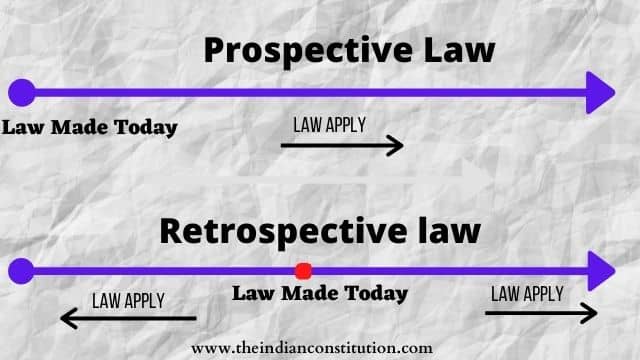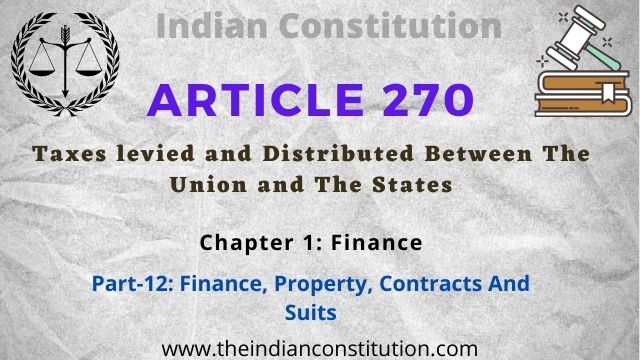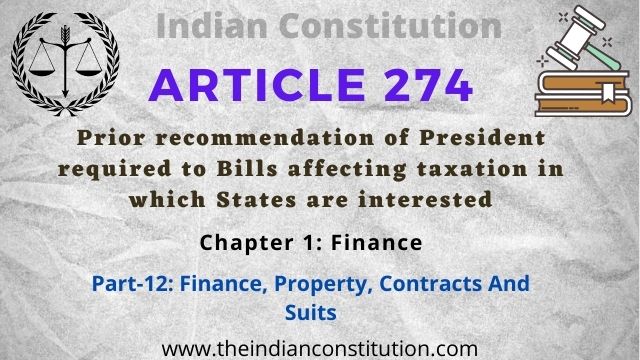Article 20 of The Indian Constitutiton: Protection For Offences
Article 20 and Article 22 are given to those person who are accused in some crime.
Article 20: Protection in respect of conviction for offences
20(1): No person shall be convicted of any offence except for violation of a law in force at the time of the commission of the Act charged as an offence, nor be subjected to a penalty greater than that which might have been inflicted under the law in force at the time of the commission of the offence.
20(2): No person shall be prosecuted and punished for the same offence more than once.
20(3): No person accused of any offence shall be compelled to be a witness against himself.
-Text in Constitution
Explanation of Article 20
Article 20 grants protection against arbitrary and excessive punishment to an accused person, whether citizen or foreigner or a legal person like a company or a corporation.
It contains three provisions in that direction:
Article 20(1): No ex-post-facto law
(a)No person shall be convicted of any offense except for violation of a law in force at the time of the commission of the act.
(b) No person shall be subjected to a penalty greater than that prescribed by the law in force at the time of the commission of the act.
Ex-Post-Facto Mean legislature can make such law which affect the offences which done in past. But here article 20(1) protect accused by denying this type of law.
Legislature can make both type of law prospective and retrospective but in criminal case legislature can not make retrospective laws.
If you commit a crime today, then according to today’s law, you will be considered guilty and punishment will be given in it. If this law is amend in the future and is increased in conviction or punishment, then it will not apply to you.
Let’s understand with example
When one person murder someone, at a time of murder their has a law that define the murder as a crime and punishment for that. If this type of law not available then that person not guilty by the eye of law.
Mr. X raped in September 2020 at that time punishment was 7 years imprisonment. Later on, the government made amendments and increase to 10 years imprisonment. [Ratanlal Vs State of Panjab]
In this case, Mr. has to finish 7 years imprisonment, not 10 years. If by amending punishment decreased to 5 years then Mr. X has to finish only 5 years not 7 years. This means less punishment applicable.
An ex-post-facto law is one that imposes penalties retrospectively (retroactively), that is, upon acts already done or which increases the penalties for such acts. The enactment of such a law is prohibited by the first provision of Article 20.
However, such protection is available only in case of criminal laws and not civil laws or tax laws. In other words, civil liability or a tax can be imposed retrospectively.
Further, this provision prohibits only a conviction or sentence under an ex-post-facto criminal law and not the trial thereof. Finally, the protection (immunity) under this provision cannot be claimed in case of preventive detention or demanding security from a person.
Note: Constitution does not define the word ‘offense’ and ‘penalty’. Article 367 of the constitution says that for this type of word take reference to The General Clauses Act.
Important Cases
- Kedar Nath Vs State of West Bengal 1953
- Ratanlal Vs State of Panjab [If retrospective law give benefit to accuse then it applicable]
Article 20(2): No Double Jeopardy
No person shall be prosecuted and punished for the same offense more than once.
The protection against double jeopardy is available only in proceedings before a court of law or a judicial tribunal.
In other words, it is not available in proceedings before departmental or administrative authorities as they are not of judicial nature. [Maqbool Hussain Vs State of Bombay 1953]
Thomas Das Vs State of Panjab:-To take protection under Article 20(2) need to fulfil three requirement
- Accuse of offense
- Prosecution run on him for this offense
- The result of Prosecution was punishment
Then person can take protection under Article 20(2)
Punishment has been done once for a crime, then it cannot be punished a second time for the same crime.
Example: Mr. Y murders someone and erases evidence than Mr. Y guilty of two crime Murder and erasing evidence. In this case, he has punished for both crimes.
Article 20(3): No Self-incrimination
No person accused of any offence shall be compelled to be a witness against himself.
This provision added to protect accused from force acceptance of crime by Police atrocity.
If there have any questions that answer expose the victim or accused then they may be denied giving the answer. This same thing also provided in CrPC section 161.
Section 25,26 and 27 of the Indian Evidence Act say that there is not the admissible value of statement given by the accused or victim which harms himself. But the accused accept crime with evidence then it admissible.
The protection against self-incrimination extends to both oral evidence and documentary evidence.
However, it does not extend to [State of Bombay Vs Kathi Kalu Oghad 1961]
- Compulsory production of material objects,
- The compulsion to give thumb impression, specimen signature, blood specimens, and
- Compulsory exhibition of the body.
It extends only to criminal proceedings and not to civil proceedings or proceedings which are not of criminal nature.
Selvi vs. State of Karnataka SC has put restrictions on narco analysis and brain mapping. However, DNA testing and other samples can be taken.
Controversies
Vodafone Case
In 2012, the Government of India made a budgetary proposal to amend the Income Tax Act with retrospective effect from 1962 to assert the government’s right to levy a tax on merger and acquisition (M&A) deals involving overseas companies with business assets in India.
It was partly to override the Supreme Courts’ ruling favoring Vodafone in a tax dispute. Notably, the government could bring in such an amendment because it was tax law, not criminal law.
However, the Parthasarathi Shome committee later recommended that either the retrospective tax amendment be withdrawn or penalty/interest, if covered under taxes, be waived off.
The aftermath of 16th December 2012, Nirbhaya Incident
After the notorious gang-rape incident in Delhi, even though public sentiment favored harsher punishment for all the six accused in the Nirbhaya gang-rape case, one of them being a minor, any revision in the juvenile age would not help the case as the amendment shall not apply with retrospective effect.




thank you for clearing the doubt….